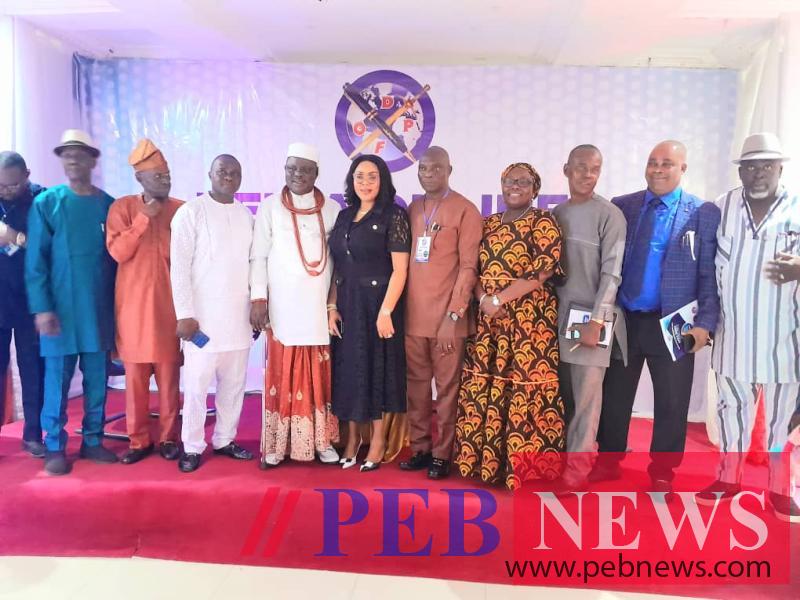/ News
Views: 705
Stakeholders brainstorm on increased taxation and balancing of revenue

Stakeholders on Wednesday at the Delta Online Publishers Forum convention held in Asaba brainstormed on increased taxation and ways of balancing revenue accruing to the state.In his opening address, Chairman Delta Online Publishers Forum, Emmanuel Enebell thanked stakeholders for finding time out of their tight schedules to attend the convention.According to him, "Since the inception of this annual lecture series, our aim has been to deliberate on matters crucial to our shared heritage, particularly as a consortium of media owners. Policies affecting economic development invariably intersect with our interests in myriad ways."The theme's significance cannot be overstated. Fiscal policy and taxation form the foundation on which a nation's shaped. It encompasses the strategies governments employ to manage finances, drive ensure equitable resource allocation. At its core lies the delicate balance between revenue generation and sustainable economic development. "One might question: Why the need for balance between revenue generation and economic growth? The answer lies in their interdependence. Economic growth hinges on investments in infrastructure, education, healthcare, and innovation-all demanding substantial funding. Conversely, excessive taxation or stringent fiscal policies can stifle economic activity, dissuade investment, and impade growth."As a media organization, the Delta Online awareness. We understand that matters they profoundly resonate within society. It is our responsibility to foster comprehension and dialogue on these intricate matters, translating complex fiscal policies into understandable information for the public."Our dialogue today holds the potential to influence government fiscal policy, particularly in the domain of taxation. By exploring the intricacies of balancing revenue generation and economic growth, we aim to propose practical solutions advocating for a tax system that nurture growth, stimulates entrepreneurship, and safeguards social welfare. Such outcomes would benefit not only the government but also instill confidence and security among the populace."We anticipate that our discussions will not only inspire, but most importantly, expedite meaningful collaborations between the government, private sector, and civil society. We envision policy recommendations that strike a harmonious balance between revenue needs and creating a conducive environment for businesses to flourish. Through informed and constructive discourse, we aspire to contribute to a fiscal framework that strengthens government resources and promotes inclusive economic growth." He stated.On his part, Chairman of the occasion, Chief Dr. Samuel J. Eshenake, "I want to appeal to all of us here that, that topic before us is a very critical one, not only at that national level, but also at the state and local levels. Because most of the complaints from laymen and elites are that, there're too many taxation. You complained against taxation, yet you expect much from the government. How do we reconcile this contradiction?" He partly stated.In further breakdown and analysing of the topic, the guest lecturer, Dr. Doris Amaka Ochei expressed thus; "To delve into this topic, we would need to consider 3 important and relevant questions and proffer appropriate solutions to address them."●What are the adverse effects on economic growth when businesses and individuals are over-taxed?"●How can the government encourage the corporate and individual taxpayer to voluntarily comply with the responsibility of paying their taxes to governments when due?"●How can Delta State, an oil-producing state, increase her internally generated revenue, overcome the challenges of revenue collection and economic growth without overburdening businesses and individuals?" She stated.